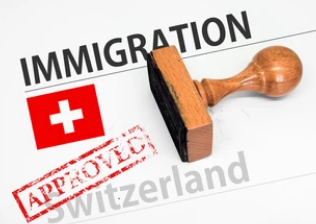The Swiss C permit is the equivalent of permanent residency, allowing a foreigner to live and work in Switzerland without any restrictions. The permit C holder does not need an authorization to change employer or to work as an independent. Additionally, the C permit does not restrict employment to a specific canton (art. 34 LEI).
The C permit must be requested by the applicant and is not granted automatically, unless the person is a citizen from Germany, Austria, Belgium, Denmark, Spain, France, Greece, Italy, Liechtenstein, Netherlands and Portugal and has lived 5 years consecutively in Switzerland with a B permit. Citizens from a number of other EU countries can also receive the C permit after 5 years but are not automatically entitled to it (Directives LEI 2019).
From January 2019, the notion of integration in the law has been emphasized. The Federal Law on Foreigners and Integration (LEI), replaced the LEtr (“loi sur les Etrangers”) and regulates all aspects concerning permits and visas in Switzerland. The introduction of the LEI is linked to the recent revisions of the Federal Law on Nationality (LN) requiring that as from January 2018, all applicants applying for Swiss citizenship must hold a C permit (art. 9 al. 1 LN).
The notion of integration is therefore a key element taken into consideration by authorities when assessing a C permit application.
The C permit is granted on request of the applicant on two conditions:
- If the applicant has lived in Switzerland for at least 10 years on a B or L permit (permits N, F or legitimation cards are not taken into account) and if the last 5 years have been spent in the country without any interruption holding a B permit (art. 34 let. a LEI);
- If there is no reason for the permit to be refused (criminal record, debts, threat to national security).
The required time of 10 years of residency in Switzerland may be shortened when the applicant is particularly well integrated.
The fast-tracked C permit or “permis C anticipé”:
A C permit can be granted after 5 consecutive years in Switzerland holding a B permit (“avec activité or regroupement familial”) if the following conditions are met (art. 34 al. 4 LEI):
- Successful integration of the applicant and family members aged 12 years and over (art. 58a LEI);
- Respect of the Swiss legal system and Constitutional values;
- Certificate of the language spoken in the area of residence at level A1 written, B1 spoken;
- Willingness to participate to the economic and social life of the country and to adapt (being employed or studying);
- When the applicant was previously granted a C permit for at least 10 years and has not lived abroad for more than 6 years.
The years spent under a B study permit do not count towards the fast-tracked C permit unless the applicant has obtained a B work permit after his studies for a minimum of 2 years (Directives LEI 2019, Chapter 3.5.2.1).
How to apply for a C permit anticipé:
A C permit application must be submitted to cantonal authorities first, the SEM in Bern will examine the application only if cantonal authorities have first approved it. The SEM assesses each application on a case by case basis and has no obligation to deliver a C permit. Each canton has a different form or procedure to follow.
For the canton of Geneva, a new form is now available. For the canton of Vaud, a motivation letter with the relevant documents is sufficient. Documents such as the copy of the applicant’s B permit, CV, work attestation or contract with recent payslips, a recent non-pursuit attestation, a language certificate B1 spoken A1 written, school attestation for children, an attestation certifying that no social benefits (Hospice Général) were received during the past 5 years and a criminal excerpt are required.
For spouses of Swiss citizens or C permit holders, the language requirements are lower. The level A2 spoken and A1 written is considered as sufficient to apply. In all cases, a language certificate is now mandatory.
A C permit application must always be requested and the level of integration of the applicant will be carefully reviewed by authorities. If later on a C permit holder breaks the law and is involved in criminal proceedings, the C permit can be revoked and replaced by a B permit depending on the nature of the crime (art. 62 and 63 LEI).
A C permit procedure can take up to one year to be processed. We can assist you by handling your application and by preparing the relevant documents, submitting the application on your behalf and following-up with authorities until a decision is received.
Contact us at legalexpat@oalegal.ch for more information.
10/01/20 – Alexa Mossaz, immigration specialist




